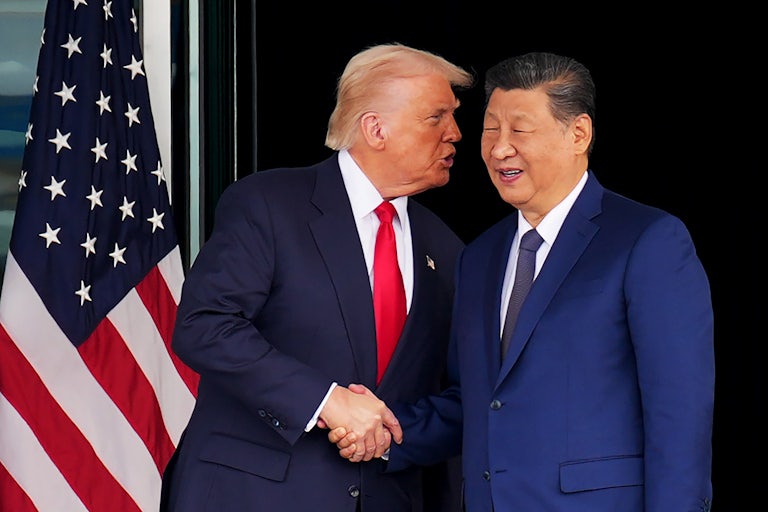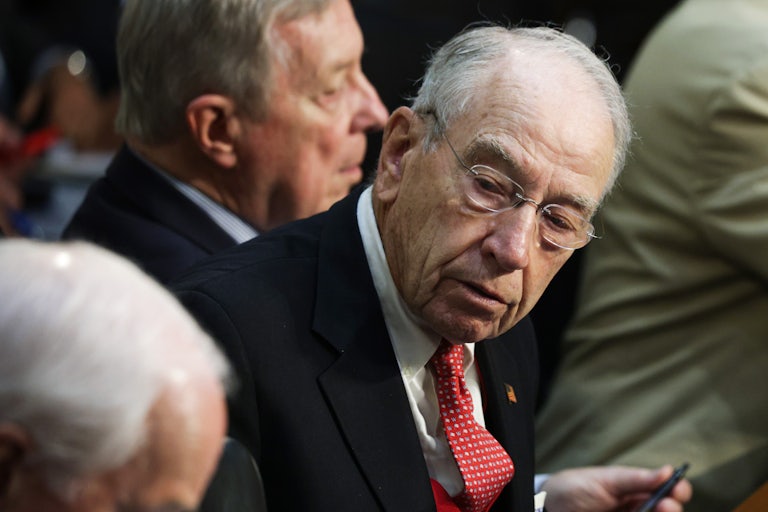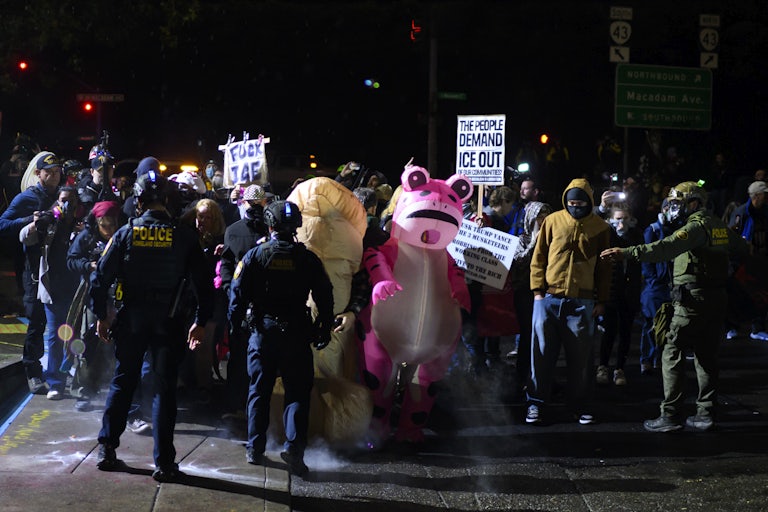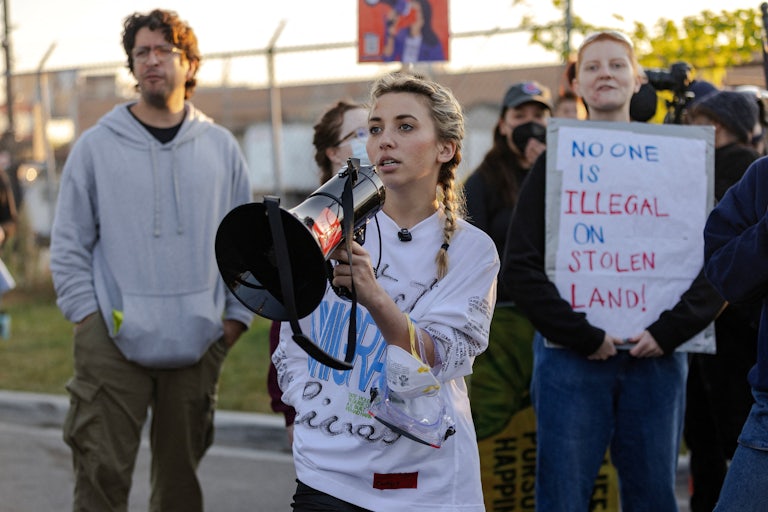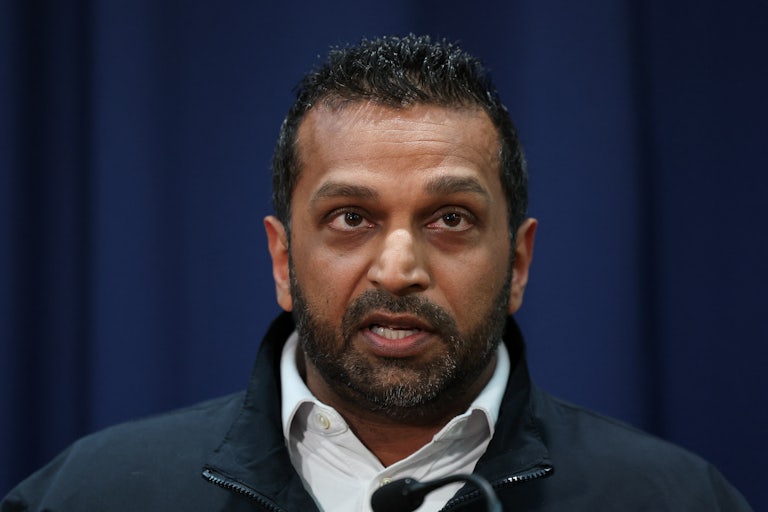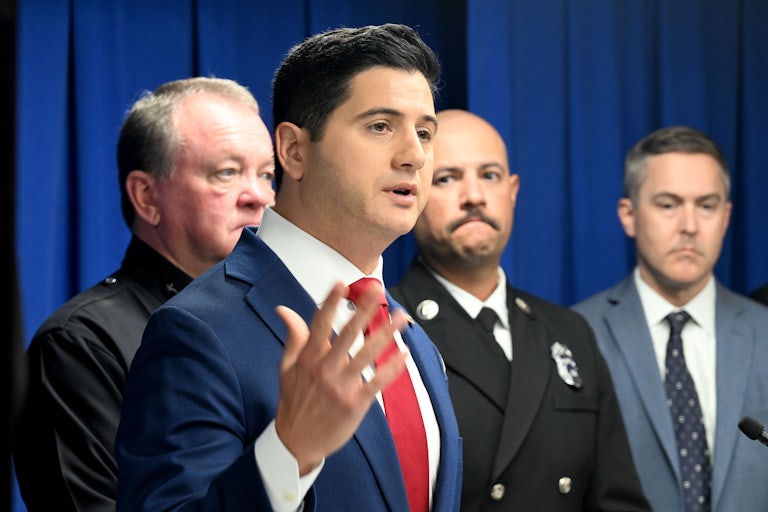Texas Judges No Longer Required to Marry Same-Sex Couples
Marriage equality is collapsing across this country, even without the Supreme Court’s help.

In a massive rollback for LGBTQ rights, the Texas Supreme Court has ruled that judges have the right to refuse to officiate gay weddings if they have a “sincerely held religious belief.”
This rule change came last week in a comment added to the state’s judicial code. “It is not a violation of these canons for a judge to publicly refrain from performing a wedding ceremony based upon a sincerely held religious belief,” the new rule reads.
This move essentially nullifies Canon 4 of the Texas judicial code, which blocked judges from doing things that would “cast doubt on their ability to act impartially or interfere with the proper performance of judicial duties”—like officiating weddings of straight couples but not gay ones. (In Texas, judges are not required to officiate weddings at all.)
In 2019, Justice of the Peace Dianne Hensley was accused of violating the judicial code when she was given a public warning for refusing to officiate gay weddings. Hensley stopped doing all wedding officiating when the Supreme Court legalized gay marriage in Obergefell v. Hodges in 2015, but promptly started discriminating again when she returned to straight-only weddings the following year, refusing any same-sex couples who came to her. Hensley sued over the public warning she later received, but now, she’s been temporarily vindicated.
“Now going forward, every judge in Texas will enjoy the freedom Judge Hensley has fought so hard for in her case,” Hiram Sasser of the conservative First Liberty Institute said. “As for her case specifically, this amendment melts away the reasons the Commission relied on to punish Judge Hensley.”
“Judge Hensley treated them respectfully,” Texas Chief Justice Jimmy Blacklock wrote, of the same-sex couples she refused. “They got married nearby. They went about their lives. Judge Hensley went back to work, her Christian conscience clean, her knees bent only to her God. Sounds like a win-win.”
Not everyone agrees.
“One of the claims that I think will be made in response to litigation that is likely is that, ‘Well, there are other people who can perform the wedding ceremony, so you can’t insist that a particular judge do it,’” law professor Jason Mazzone said. “But that, of course, is not how equal protection works, and it’s not how we expect government officials to operate.”
That one sentence at the bottom of the Texas judicial code is effective immediately, and may even have an impact on the right’s efforts to overturn gay marriage protections in the United States, adding the right to love to the list of quickly eroding liberties currently under attack.

